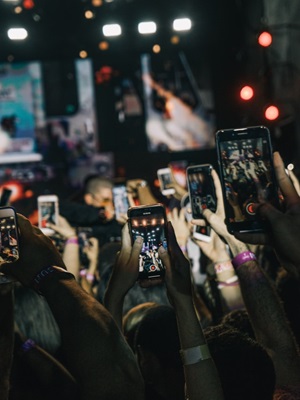Artificial Intelligence (AI) is the current buzzword that pervades all fields. From crunching numbers in the financial industry to diagnosing diseases in the field of medical science, from summarizing documents to driving cars, it is difficult to think of anything that has not been touched by AI. Considering this rapidly increasing clout of AI, it is certainly important to first understand the phenomenon. So, AI is basically a simulation of human intelligence. It has been created by humans and is hence ‘artificial’. As it is inspired by and simulates human intelligence, it finds application in the most fundamental activities that humans are known for: analysis and decision making.
Though interest in AI has spiked over the last few years, the discipline originated over six decades ago when some scientific minds developed curiosity to explore whether machines could think and act like humans. Most people have the desire of getting rid of the drudgery of repetitive tasks Therefore, those involved in the development of AI desired to develop machines smart enough to perform such tasks. This could free up time for humans to indulge in creative pursuits and more complex work that provides intellectual stimulation or enjoyment. While AI has covered significant ground on this path, what is more important to consider is that it can handle volumes of data and transactions at a scale that humans cannot be expected to process. Nor can humans imagine working at the same pace. For instance, it takes hardly three seconds for the Generative-AI tool ChatGPT to prepare a write-up or explain any technical terms or concepts, analyze companies or generate a code snippet. Two key factors are among those that helped AI achieve this scope and super-efficiency: absence of tiredness and the emotional roll-coaster rides that affect humans, and advancements in hardware.
Considering the mind-boggling pace and power of AI, it is worth understanding how it works. Conventional programming involves giving computers very specific instructions with a fixed set of possibilities. That is exactly where AI is different. AI systems are trained by either feeding them a huge quantum of data and showing them how it is to be categorized or how conclusions are arrived at. Once the evolution of AI gathered significant momentum, there was also a desire to turn over a greater share decision-making work to machines. The hope was that they would convert subjective tasks that involve human opinions and dilemmas into data-driven objective decision-making processes. Hiring and promotions are also such activities. After all, there is never a dearth of job seekers. Therefore, the first challenge is the massive effort required of each recruiter to go through thousands of resumes in different formats and shortlist them for the next stage of the hiring process. Hiring managers also desire decision support when confronted with a set of candidates who have differences on specific parameters. This is where AI steps in. From identifying suitable candidates across platforms to screening resumes based on keywords pertaining to their education, skills and experience to identifying those who are more aligned with the company’s culture, AI can do all this in a jiffy. According to the article How Artificial Intelligence (AI) in HR Is Changing Hiring1 published on the University of Southern California’s website in November 2023, ‘AI in HR has already proven to be beneficial for short-staffed human resources departments. Predictive Hire reports that 56% of people agree that automated tools relieve some administrative burden. Additionally, AI tools can help find higher quality candidates and reduce the overall time it takes to hire, according to Forbes. Considering all that AI can do for recruiters and job seekers, it is clear how invaluable AI is set to become across all industries, including human resources.’ Going a step further, AI can analyze the performance of employees and prepare a shortlist of those who can be considered ready for promotion.
Now, when one considers the power and pace of AI together with its replication of the human way of thinking – identifying patterns and trends, categorizing things and more – one understands the growing concerns around involving it in activities such as decision making for hiring and promotions. The primary concern is that if the data that is used to train an AI model reflects the prejudices or biases of the people who provided it, the model will learn those prejudices or biases and incorporate them in its own decisions. If that happens, the implications are particularly dangerous because AI can take these decisions much faster and at a much larger scale than humans. This can lead to rapid reduction of diversity in a company’s workforce as AI will shortlist for selection as well as promotion people with similar traits. Candidates who are exceptions could be entirely missed. Such outliers are often identified by humans based on their out-of-the-box thinking; their difference from the routine or pattern is considered to be their unique selling proposition (USP). According to the article AI in Recruiting 2024: Pros and Cons2 on the website of the management consulting firm Korn Ferry, ‘Rely on AI alone to do your screening, and you risk missing out on prime candidates in the event that tech fails to read between the lines on resumes and applications. For example, a low-quality chatbot screening paired with the wrong kind of digital assessment means you won’t get the best or most fitting candidates coming through to hiring leaders.’ On the same lines, prejudices or biases within the training data could deprive meritorious employees promotion opportunities just because their thought process or ways of working do not conform to the desired pattern identified by the training data.
It is due to the risks associated with the use of AI that we now have AI ethicists – professionals who focus on the integration of ethics into the development and implementation of AI systems. The real question is not whether AI should be used for decision making in hiring and promotions. Let us face the fact that AI will be used considering the opportunity for efficiency improvement. The solution lies in introducing safeguards so that this benefit is realized without the fairness and objectivity of the process being compromised. Organizations that use AI for hiring and promotion decisions can follow steps as shared in the November 2024 article The Hidden Legal Risks of AI and Automation in Recruitment3: utilize diverse and unbiased training data, conduct regular audits of AI systems, establish clear ethical guidelines and balance AI with human judgment. Like so many human-made tools and disciplines, AI can also be either put to good use or be abused. It is up to those, who would not like to see their workforce and organizations facing adverse effects, to build momentum for the ethical use of AI in hiring and promotions.
1 https://communicationmgmt.usc.edu/blog/ai-in-hr-how-artificial-intelligence-is-changing-hiring
3 https://qxglobalgroup.com/rs/us/blog/legal-risks-of-ai-and-automation-in-recruitment/
Posted 07/06/2025


















8 months ago
Hi